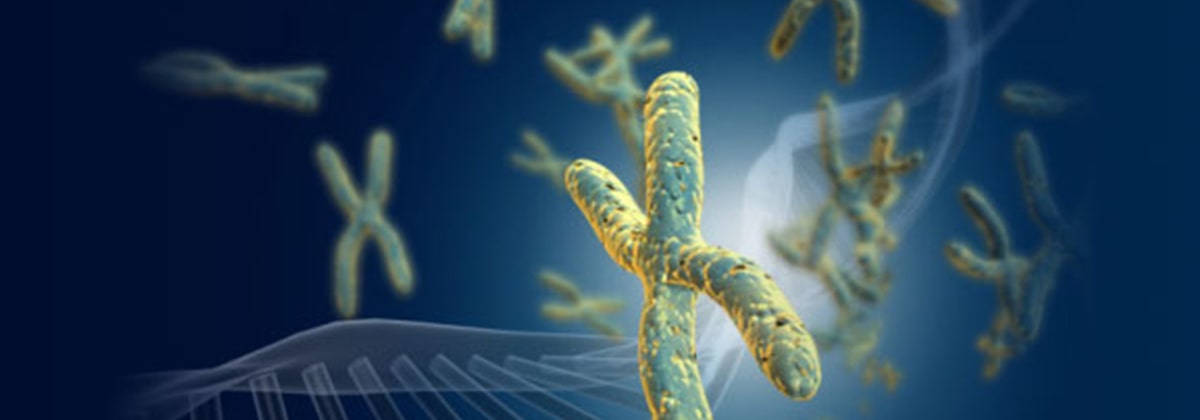
Klinefelter syndrome is a genetic disorder that occurs in males. While the chromosome structure, which we can call normal, should be 46XY for men, Klinifer syndrome is caused by the presence of 47 XXY chromosomes in men. One of the most difficult problems in solving male infertility is genetic disorders. One of the main causes of azoospermia is Klinefelter syndrome. However, men with a genetic disorder known as Klinefelter syndrome have a chance to have children with assisted reproductive techniques.
What Are the Types of Klinefelter Syndrome?
Klinefelter syndrome is examined in two groups.
48 XXYY Syndrome: It is a rare syndrome. People with this syndrome have extra X and Y chromosomes and their symptoms progress more slowly.
Mosaic 47 xxy klinefelter syndrome & 46 xxy syndrome: The symptoms are milder in people with this syndrome. Klinefelter syndrome is observed in one part of the cell, and a different type of structure is observed in another part. For this reason, it is also called “Mosaic type”.
Causes of Klinefelter Syndrome
The exact causes of Klinefelter male syndrome are not known. In this syndrome, it is risky for the father to be older. Klinefelter syndrome, which affects 1 in 1000 babies, is thought to be caused by an error in the fertilized egg or by cells dividing as the embryo grows. The genetic structure that should normally be XY is observed in these individuals as xxy chromosomes. In other words, the sex chromosome, which should normally be 2, becomes 3 from the mother or father.
Klinefelter Syndrome Symptoms
- Legs longer than normal
- Being longer than normal neck
- Narrow shoulders
- Breast enlargement
- Decrease in the proportion of hair on the body
- Testicles remain small and do not develop
- Low sexual desire
- Factors such as not being able to have children (low sperm count or no sperm) are among the symptoms of klinefelter.
Klinefelter Syndrome Test
To establish the diagnosis, a comprehensive examination is carried out. After the blood sample is taken during the examination, the hormone levels and genetic structures are examined and the diagnosis is made. It is mostly seen in azoospermia tests performed by couples who cannot have children. Klinefelter syndrome chromosome number is high in these individuals.
Those whose spouses have Klinefelter syndrome should know that this genetic disorder can be largely treated.
Klinefelter Syndrome Treatment
There is no treatment to completely eliminate Klinefelter syndrome. Because the XXY chromosome set is a genetic condition, it cannot be changed, only its symptoms can be reduced.
If the diagnosis of Klinefelter syndrome is made early and the treatment of Klinefelter syndrome is started early, our rate of getting a good response will increase.
Testosterone therapy can be used to normalize and increase sexual development. Drugs that will indirectly increase the testosterone ratio and do not suppress sperm production should be preferred.
Is Klinefelter Syndrome Risky?
Some conditions that may occur in people with Klinefelter syndrome (xxy syndrome):
- Osteoporosis,
- Diabetes,
- Breast cancer,
- Testicular cancer,
- Anemia,
- Sleep apnea,
- Infertility,
- Lung disease,
- Depression or other psychiatric conditions,
- Leukemia,
- Thyroid disease,
- High cholesterol,
- Varicose veins.
In addition, contrary to what is known, Klinefelter syndrome does not cause mental retardation. But it can affect cognitive development, such as difficulty speaking, reading, and understanding.
Klinefelter Syndrome and IVF Treatment
Individuals with Klinefelter syndrome who cannot have children apply to IVF treatment. Sperm are obtained from individuals with Klinefelter syndrome by micro-tese surgery. The obtained sperm can be used to fertilize the egg in IVF treatment.
Can Men with Klinefelter Syndrome Have Children?
Individuals with XXY chromosome disease produce little or no sperm. Klinefelter syndrome can lead to infertility. Therefore, a large proportion of Klinefelter male patients cannot conceive naturally.
